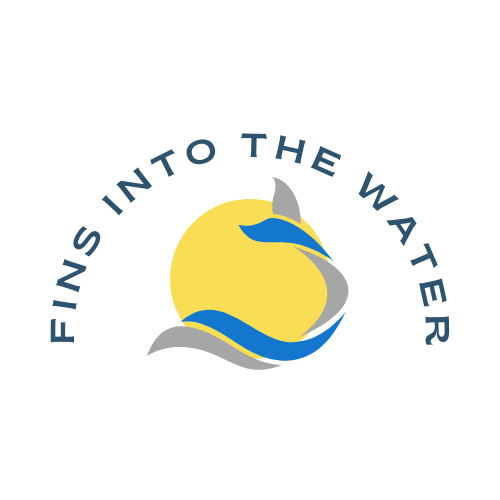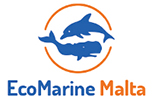
Fins Into the Water and Ocean Literacy
EcoMarine Malta is proud to be taking part in Fins into The Water, a project that aims to spread Ocean Literacy and Mediterranean Sea Literacy amongst the people in industries that rely on the Mediterranean Sea
#FinsintotheWater is a project funded by the Erasmus+. Project partners are:
Clean Boating (coordinator),
Bikini Diving
Hellenic Centre for Marine Research
This project is being promoted by a collaboration of organisations working in education, marine research or CMT in the Mediterranean. Together, we will achieve this goal by creating attractive and accessible resources to educate these stakeholders and tourists to take actions for more sustainable use of the sea.
But first, what is Mediterranean Sea Literacy?
Mediterranean Sea Literacy (MSL) is an adaptation of Ocean Literacy specifically pertaining to the Mediterranean region. In short, Mediterranean Sea Literacy is an understanding of how you affect the Mediterranean Sea and in turn, how the sea affects you.
The idea of Mediterranean Sea Literacy is to make the peoples of the Mediterranean aware of the benefits they receive daily from the sea, such as oxygen and the climate and weather of the place they live in. Moreover, it aims to inform people about the negative impact our actions have on the sea, such as carbon dioxide emissions leading to global warming and ocean acidification, which is leading to loss of biodiversity.
These are the 7 Ocean Literacy Principles the Mediterranean Sea Principles are derived from:
- Earth has one big ocean with many features.
- The ocean and life in the ocean shape the features of Earth.
- The ocean is a major influence on weather and climate.
- The ocean makes Earth habitable.
- The ocean supports a great diversity of life and ecosystems.
- The ocean and humans are inextricably interconnected.
- The ocean is largely unexplored.
These are the 7 Mediterranean Sea Literacy Principles:
- The Mediterranean Sea, semi-enclosed by land of three continents, is part of one big ocean and has many unique features.
- The Mediterranean Sea and its living organisms shape the features of the Mediterranean region and its adjacent landmasses.
- The Mediterranean Sea has a major influence on the climate and weather of the Mediterranean region.
- The Mediterranean Sea made the Mediterranean region habitable through its richness of life thus becoming the cradle of Western civilization.
- The Mediterranean Sea is a marine biodiversity hotspot, with a high level of endemism.
- The culture, history, economy, lifestyle, health and wellbeing of the peoples of the Mediterranean region are inextricably interconnected.
- Although the Mediterranean Sea has been explored for centuries, it still remains largely unexplored.
Creating specific resources for the Mediterranean like the 7 MSL Principles allows for its specific problems to be addressed (such as posters regarding not disturbing local endangered species at the beach) to its relevant stakeholders and tourists in the many languages spoken in this region. In this way, a greater commitment to protecting the Mediterranean Sea can be fostered by educating, in a way that is accessible, on its environmental, cultural, historical, and economical importance which brings the Mediterranean community together.
MSL is especially important for the Coastal and Maritime Tourism (CMT) industry which puts a large strain on the Mediterranean Sea. Millions of tourists visit annually for activities like diving, water sports, eating local seafood and boat tours, disturbing marine life. If these activities are not carried out in a sustainable way in line with MSL principles, it could lead to the destruction of the Mediterranean marine ecosystem. This would impact everyone, but these stakeholders would be especially affected by the decline in the Mediterranean’s appeal as a touristic destination.
This project aims to lessen this strain on the Mediterranean Sea by spreading MSL to users and providers of CMT in an attractive and accessible way so that they carry out these activities in a sustainable manner.
What is EcoMarine Malta doing for Fins Into The Water?
As part of this project, EcoMarine Malta is creating resources such as infographics on the Code of Conduct which are being spread on our social media pages. This is being done to present Mediterranean Sea Literacy in a more accessible way and to reach people who interact with the sea.
The Code of Conduct is the official guideline on how to approach dolphins put forward by The Agreement on the Conservation of Cetaceans of the Black Sea, Mediterranean Sea and contiguous Atlantic area (ACCOBAMS). This guideline ensures that dolphin watchers can observe cetaceans and turtles without causing them stress or harming them, which is illegal as they are protected by EU regulations.
Many private boat owners, jet skiers and kayakers come across dolphins around the Maltese islands as they carry out their leisure activities. Due to the lack of awareness, many people who spot dolphins try to feed them or chase them. This disturbs the dolphins’ behaviour, be it communication, feeding or taking care of calves and repeated harassment could be detrimental to their survival.
During the summer season, these activities become more popular and potentially more dolphins could be disturbed. That is why EcoMarine Malta continues to reach out to the public, through social media to release an article on the Code of Conduct to reach people as much as possible during this busy summer season.
EcoMarine Malta has also participated in the Science in the Citadel 2023 educational science fair. In the EcoMarine Malta stall, our team spoke to people of all ages about the dolphins found in Maltese waters. Through this activity, we spread more awareness on the diversity of life in Maltese waters as well as the threats they are facing.
Furthermore, EcoMarine Malta launched a challenge during the 2022 Young Innovators Climathon organised by MCAST and EIT Climate-KIC. EcoMarine Malta presented the problem of “The Impact of Tuna Penning on the Marine Ecosystem, focusing on Maltese waters” to secondary school students, who worked together to solve this problem. This event increased their MSL by educating them on local problems and encouraging them to think of alternative solutions. Transport Malta, which is the government authority responsible for policing maritime activities in territorial waters, participated in the Climathon alongside EcoMarine Malta. The connection EcoMarine Malta built with this important stakeholder through the Climathon is to be used in future projects to promote MSL.
#marineconservation #Mediterranean #MediterraneanSea #awarenessraising #SDG14 #oceanliteracy #MediterraneanSeaLIteracy #EUErasmusPlus #bikinidiving #cleanboating #elpeixalplat #emsea #ecomarineMalta #HellenicCentreforMarineResearch #UniversityofZadar

